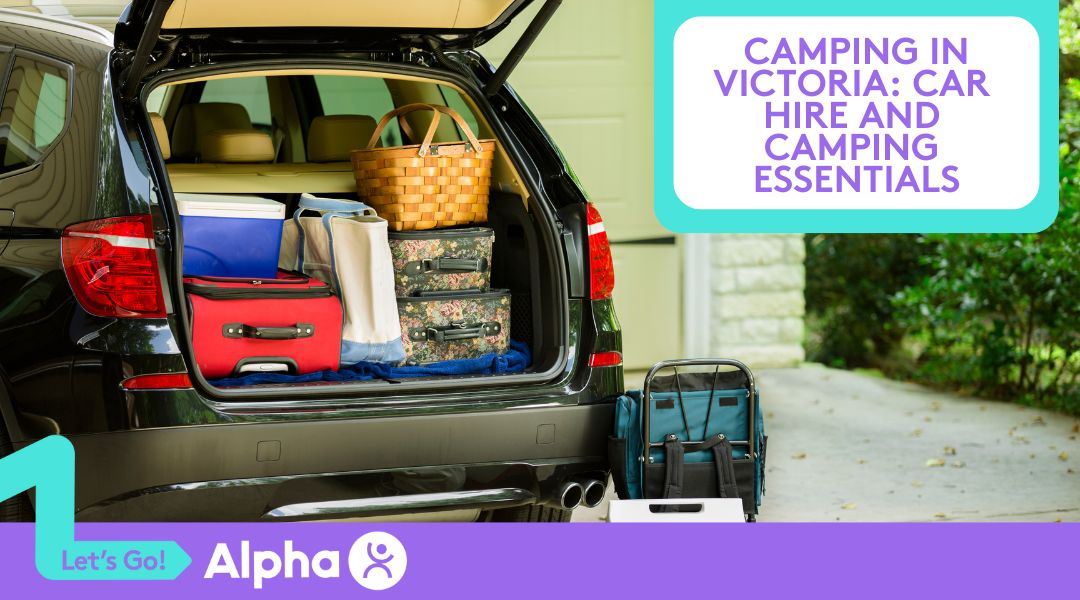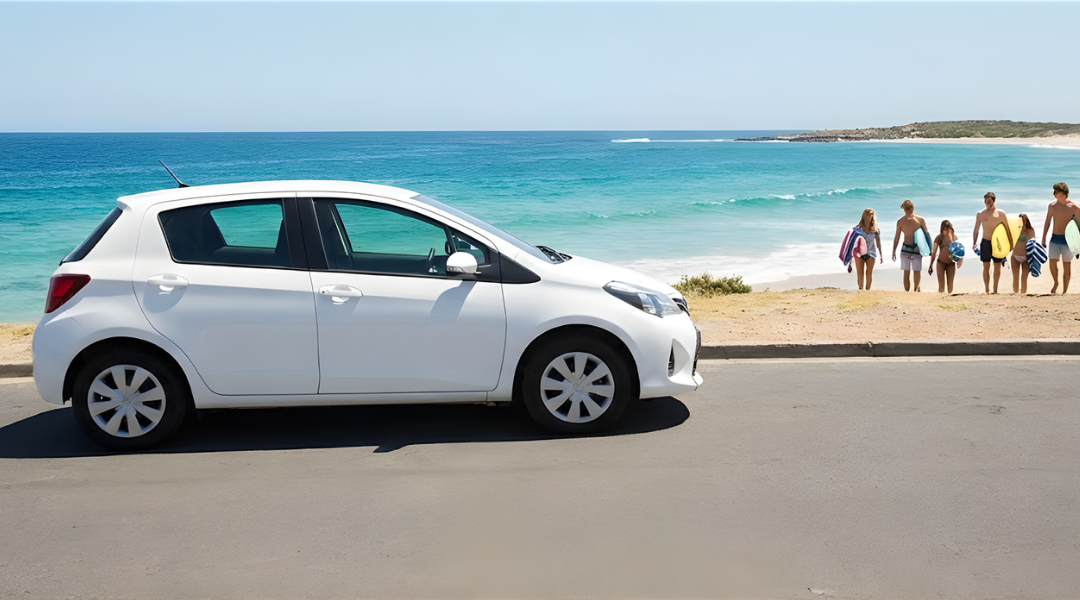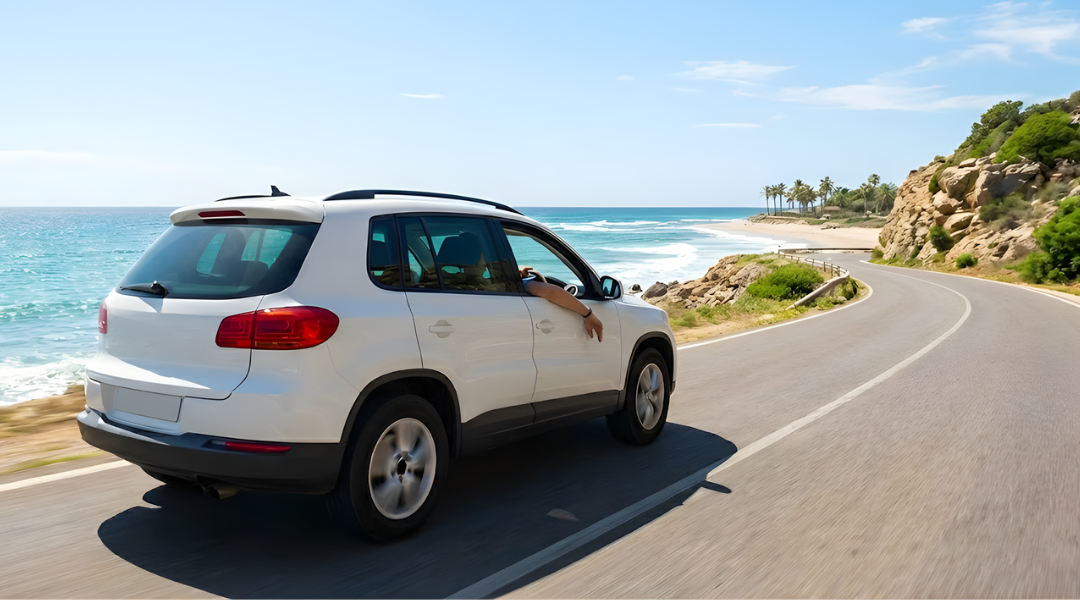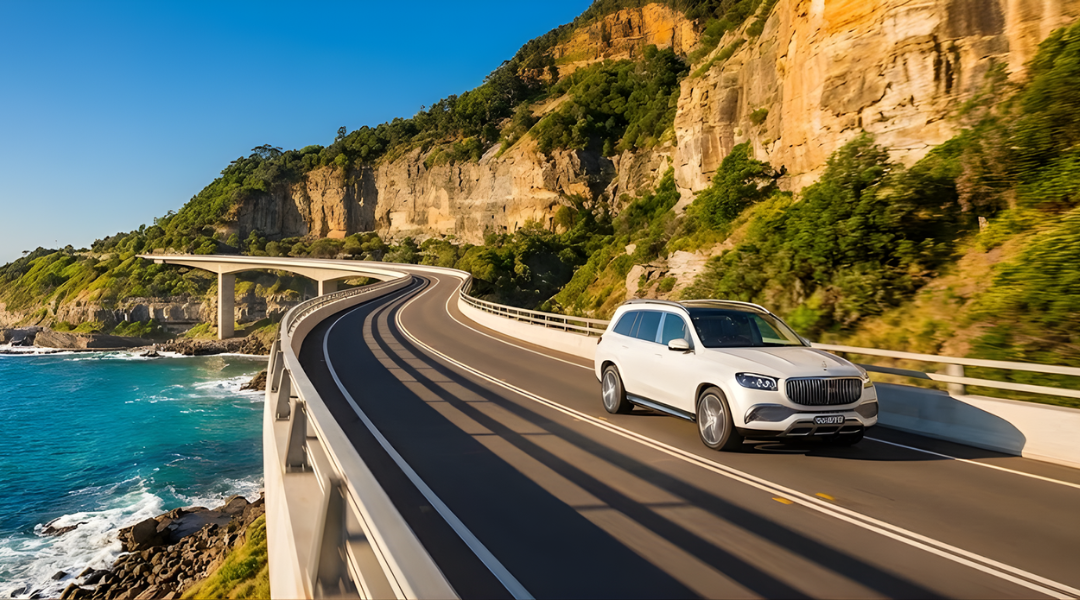Are you planning a road trip through the stunning landscapes of Victoria? Renting a car is a fantastic way to explore the state’s diverse attractions at your own pace. However, choosing the right vehicle and understanding the essential features can significantly enhance your travel experience.
In this guide, we’ll explore the key factors to consider when hiring a car for your Victorian adventure:
Choosing the Right Vehicle:
When planning a road trip in Victoria, selecting the right vehicle is crucial. Consider these factors:
-
4WD vs. 2WD:
- 4WD: Ideal for off-road adventures, particularly in remote areas with unsealed roads and challenging terrain. Provides better traction and stability on rough surfaces.
- 2WD: Suitable for most paved roads and highways. More fuel-efficient and easier to drive in urban areas.
-
Car Capacity and Luggage Space:
- Passenger Capacity: Ensure the vehicle can accommodate all passengers comfortably.
- Luggage Space: Consider the amount of luggage you’ll be carrying and choose a vehicle with adequate storage space. Roof racks or trailers can be useful for additional storage.
-
Essential Vehicle Features for Camping:
- Roof Racks: Ideal for carrying camping gear like tents, sleeping bags, and camping chairs.
- 4WD Capability: Essential for accessing remote campsites and off-road tracks.
- Fuel Efficiency: A fuel-efficient vehicle can save you money on fuel costs, especially for long road trips.
- Comfort and Convenience: Comfortable seating, air conditioning, and a good sound system can enhance your road trip experience.
Additional Tips for Choosing a Rental Car:
- Insurance Coverage: Ensure you have adequate insurance coverage, including comprehensive and collision coverage.
- Driver’s License: Make sure you have a valid driver’s license.
- Age Restrictions: Some rental companies have age restrictions for certain vehicle categories.
- Fuel Policy: Understand the fuel policy, whether it’s a full-to-full or a pre-paid fuel option.
- Additional Fees: Be aware of any additional fees, such as fees for additional drivers, young driver surcharges, or GPS rental.
By carefully considering these factors, you can choose the perfect rental car for your Victorian adventure.
Car Hire Tips for a Victorian Adventure
1. Booking Your Rental Car
- Early Booking: Book your rental car well in advance, especially during peak tourist seasons.
- Compare Prices and Deals: Use online comparison tools to find the best deals from various rental companies, including those offering car hire at Melbourne Airport.
- Read the Fine Print: Carefully review the rental agreement, including terms and conditions, fees, and insurance coverage.
2. Insurance Considerations
- Comprehensive Insurance: Consider purchasing comprehensive insurance to protect your rental car from theft, vandalism, and accidental damage.
- Third-Party Liability: Ensure you have adequate third-party liability insurance to cover damages to other vehicles or property.
- Excess Reduction: Consider purchasing excess reduction coverage to lower your liability in case of an accident.
3. Essential Documents and Licenses
- Valid Australian Driver’s License: A valid Australian driver’s license is essential for renting a car.
- International Driving Permit (IDP): If you’re an international visitor, an IDP is recommended, especially if you’re planning to drive in remote areas.
4. Understanding Road Rules and Regulations
- Road Signs and Signals: Familiarize yourself with Australian road signs and traffic signals.
- Speed Limits: Adhere to speed limits, which can vary depending on the road type and location.
- Wildlife: Be cautious of wildlife, especially in rural areas. Slow down and be prepared to stop if necessary.
- Emergency Services: Know how to contact emergency services in case of an accident or breakdown.
- Fuel Availability: Plan your route and fuel stops, especially in remote areas.
Additional Tips for a Smooth Road Trip
- Check Road Conditions: Before embarking on your journey, check road conditions and weather forecasts.
- Pack Essentials: Pack a first-aid kit, a spare tyre, and other essential items for your trip.
- Plan Your Route: Use a GPS navigation system or a printed map to plan your route.
- Stay Hydrated: Keep plenty of water on hand, especially during long drives.
- Take Breaks: Avoid fatigue by taking regular breaks during your journey.
By following these tips, you can ensure a safe and enjoyable car rental experience in Victoria.
Camping Gear Essentials
1. Tents: The Heart of Your Campsite
- Dome Tents: These are popular for their ease of setup, spaciousness, and stability. They are ideal for families or groups.
- Tunnel Tents: These tents offer excellent wind resistance and are perfect for windy campsites. They are often more spacious than dome tents.
- Pop-Up Tents: These tents are incredibly easy to set up and take down, making them ideal for quick camping trips. However, they may not be as durable as dome or tunnel tents.
2. Sleeping Gear: Comfort in the Wilderness
- Sleeping Bags: Choose a sleeping bag with the appropriate temperature rating for your camping destination. Consider factors like warmth, comfort, and weight.
- Sleeping Mats: A good sleeping mat provides insulation from the cold ground and enhances comfort. Self-inflating mats are popular for their convenience and comfort.
3. Camping Cookware and Utensils
- Pot and Pan Set: A versatile set of pots and pans is essential for cooking a variety of meals. Look for lightweight and durable options.
- Cooking Utensils: A good set of cooking utensils should include a spatula, spoon, fork, and knife.
- Camp Stove and Fuel: A portable camping stove is essential for cooking meals. Choose a stove that is easy to use and reliable.
- Water Bottles: Keep yourself hydrated with reusable water bottles.
4. Lighting Solutions: Illuminate Your Campsite
- Headlamps: A headlamp is a hands-free lighting solution that is perfect for nighttime activities.
- Lanterns: A lantern can provide ambient light for your campsite. Choose a lantern that is bright, durable, and energy-efficient.
5. First-Aid Kit and Emergency Supplies
A well-stocked first-aid kit is essential for any camping trip. Consider including the following items:
- Bandages: Various sizes and types
- Antiseptic wipes
- Pain relievers
- Antihistamine
- Tweezers
- Safety pins
- Sunscreen
- Insect repellent
Additionally, consider packing:
- A repair kit: For fixing minor gear issues.
- A multi-tool: A versatile tool for various tasks.
- A waterproof map and compass: For navigation in remote areas.
- A whistle: To signal for help in case of an emergency.
By carefully selecting and packing your camping gear, you can ensure a comfortable and enjoyable outdoor experience.
Must-Visit Camping Destinations in Victoria
Victoria offers a diverse range of stunning landscapes, from rugged coastlines to majestic mountains, making it a perfect destination for camping enthusiasts. Here are some of the top camping spots in Victoria:
1. Great Ocean Road
The Great Ocean Road offers stunning coastal scenery, iconic landmarks like the Twelve Apostles, and diverse wildlife.
- Popular Camping Spots:
- Apollo Bay: A coastal town with numerous camping options, including beachfront and bush campsites.
- Great Ocean Road National Park: Offers a variety of campsites with stunning coastal views.
- Port Campbell National Park: Home to the Twelve Apostles, this park offers camping options with easy access to the iconic rock formations.
2. High Country
The High Country is a mountainous region in Victoria, known for its stunning alpine scenery, charming towns, and outdoor activities.
- Popular Camping Spots:
- Alpine National Park: Offers a range of camping options, from basic campsites to well-equipped caravan parks.
- Mount Buller: Popular for skiing and snowboarding in winter and hiking and camping in summer.
- Falls Creek: Another popular ski resort that offers camping opportunities in the summer months.
3. Wilsons Promontory National Park
This national park is a paradise for nature lovers, offering pristine beaches, rugged cliffs, and diverse wildlife.
- Popular Camping Spots:
- Tidal River: A popular campground with a range of accommodation options, including cabins, campsites, and lodges.
- Squeaky Beach: A beautiful beach campsite with stunning coastal views.
- Lilly Pilly Campground: A secluded campground offering a peaceful and tranquil setting.
4. Grampians National Park
The Grampians National Park is a stunning mountain range with breathtaking views, unique rock formations, and diverse wildlife.
- Popular Camping Spots:
- Reeds Lookout Campground: Offers stunning views of the Grampians.
- Roaring Meg Campground: A popular campground with easy access to hiking trails and scenic lookouts.
- The Pinnacle Campground: A remote campground offering a wilderness experience.
Remember to check park regulations, permit requirements, and fire restrictions before planning your trip. Always practice Leave No Trace principles to minimise your impact on the environment.
Additional Tips for Camping in Victoria:
- Pack for the Weather: Check the weather forecast and pack appropriate clothing and gear.
- Stay Hydrated: Drink plenty of water, especially in hot weather.
- Protect Yourself from the Sun: Wear sunscreen, a hat, and sunglasses.
- Be Bear Aware: In some areas, it’s important to be aware of wildlife, especially bears. Store food and scented items securely.
- Campfire Safety: Always follow campfire regulations and extinguish fires completely before leaving your campsite.
By following these tips and planning your trip carefully, you can enjoy a memorable camping experience in Victoria.
Camping Tips for Beginners
1. Choosing a Campsite
- Research: Use online resources, camping guides, and social media to find suitable campsites.
- Permits: Check if permits are required for specific campsites or national parks.
- Facilities: Consider the availability of amenities like toilets, showers, and drinking water.
- Privacy: If you prefer a secluded camping experience, look for dispersed camping areas or campsites with fewer people.
- Weather Conditions: Check the weather forecast before choosing a campsite. Avoid low-lying areas prone to flooding.
2. Setting Up Camp
- Pitch Your Tent: Follow the instructions provided with your tent. Ensure it’s securely pegged down.
- Level the Ground: Use a leveller to ensure a comfortable sleeping surface.
- Organize Your Gear: Keep your gear organized and easily accessible.
- Set Up Camp Chairs and Table: Create a comfortable seating area.
- Prepare Your Sleeping Bag: Ensure it’s dry and ready for use.
3. Fire Safety and Bushfire Awareness
- Check Fire Restrictions: Always check local fire restrictions before starting a campfire.
- Choose a Safe Fire Pit: Select a cleared area away from trees, bushes, and dry grass.
- Have Water and a Shovel Ready: Keep water and a shovel nearby to extinguish the fire completely.
- Never Leave a Fire Unattended: Always supervise your campfire.
- Extinguish the Fire Properly: Douse the fire with water, stir the ashes, and ensure the fire is completely out before leaving the campsite.
- Be Aware of Bushfire Danger: During bushfire season, avoid camping in high-risk areas.
4. Leave No Trace Principles
- Plan and Prepare: Know the regulations and pack accordingly.
- Travel and Camp on Durable Surfaces: Avoid walking on fragile vegetation and stay on designated trails.
- Dispose of Waste Properly: Pack out all trash, including food scraps and toilet paper.
- Leave What You Find: Resist the urge to collect natural objects.
- Minimize Campfire Impacts: Use established fire rings and extinguish fires completely.
- Respect Wildlife: Observe wildlife from a distance and avoid disturbing them.
- Be Considerate of Other Campers: Be mindful of noise levels and avoid disturbing other campers.
5. Wildlife Encounters and Safety
- Store Food Properly: Use bear-resistant food storage containers to keep animals away.
- Campsite Hygiene: Clean up after meals and dispose of food waste properly.
- Avoid Wildlife Encounters: Don’t approach wildlife, especially bears and other large animals.
- Stay Calm: If you encounter a wild animal, stay calm and avoid making sudden movements.
- Carry Bear Spray: In bear country, carry bear spray and know how to use it.
By following these tips, you can enjoy a safe, responsible, and memorable camping experience.
FAQs About Camping in Victoria
1. What are the best times of year to go camping in Victoria? The best time to camp in Victoria depends on your preferences. Spring and autumn offer mild weather, making them ideal for camping. Summer can be hot, but it’s a great time to enjoy water-based activities. Winter can be cold and snowy, but it offers unique opportunities for winter camping.
2. What are the popular camping destinations in Victoria? Victoria offers a variety of camping destinations, including:
- Great Ocean Road
- High Country
- Wilsons Promontory National Park
- Grampians National Park
- Mornington Peninsula
- Yarra Ranges National Park
3. Do I need a permit to camp in Victoria? In many national parks and state forests, you need a camping permit. You can usually obtain permits online or at park visitor centres. Some campsites operate on a first-come, first-served basis.
4. What are the essential items to pack for camping in Victoria? Essential camping gear includes a tent, sleeping bag, sleeping mat, headlamp, first-aid kit, food, water, a portable stove, cookware, and warm clothing.
5. How can I stay safe while camping in Victoria?
- Be aware of bushfire risks: Check fire restrictions and avoid camping in high-risk areas.
- Protect yourself from wildlife: Store food securely and avoid approaching wildlife.
- Practice Leave No Trace principles: Minimize your impact on the environment.
- Check weather conditions: Be prepared for changing weather conditions, especially in mountainous areas.
- Inform someone of your plans: Let someone know where you’re going and when you expect to return.
6. What are some tips for camping in winter in Victoria?
- Choose a suitable campsite: Look for campsites with good shelter from the wind and snow.
- Dress in layers: Wear warm clothing and pack extra layers.
- Protect yourself from the cold: Use a good sleeping bag and sleeping mat.
- Bring extra food and water: Prepare for unexpected weather conditions and delays.
- Check road conditions: Be aware of road closures and hazardous conditions, especially in mountainous areas.
7. Can I bring my pet camping in Victoria? Many campsites in Victoria allow pets, but there are specific rules and regulations. Check with the park authorities or campsite management to ensure your pet is allowed.
8. What are some popular camping activities in Victoria? Victoria offers a wide range of camping activities, including hiking, bushwalking, swimming, fishing, kayaking, and stargazing.
9. What is the best time of year to go camping in Victoria? The best time to go camping in Victoria depends on your preferences. Spring and autumn offer mild weather and beautiful scenery. Summer can be hot, but it’s a great time for water-based activities. Winter can be cold, but it offers unique opportunities for snow camping and winter sports.
10. What should I do if I encounter a snake while camping? If you encounter a snake, stay calm and avoid provoking it. Slowly back away and give the snake plenty of space.
11. How can I protect myself from bushfires while camping?
- Stay informed about fire danger ratings and restrictions.
- Choose campsites away from high-risk areas.
- Extinguish campfires completely before leaving.
- Be cautious with smoking and other activities that could start a fire.
12. What are some tips for camping with kids in Victoria?
- Choose a family-friendly campsite with amenities like playgrounds and swimming areas.
- Pack plenty of snacks and drinks.
- Bring games and activities to keep kids entertained.
- Involve kids in camp chores like setting up tents and collecting firewood.
Conclusion
Camping in Victoria offers a unique opportunity to connect with nature, explore stunning landscapes, and create unforgettable memories. By planning your trip carefully, choosing the right gear, and following safety guidelines, you can ensure a safe and enjoyable camping experience.
Remember to respect the environment and practice Leave No Trace principles to preserve the natural beauty of Victoria’s wilderness.
Seamless Car Rentals with Alpha Car Hire Melbourne
Explore the vibrant city of Melbourne and its stunning surroundings with ease and convenience. Alpha Car Hire offers a wide range of vehicles to suit your needs, from compact cars for city adventures to spacious SUVs for family road trips. With competitive rates, flexible rental terms, and exceptional customer service, Alpha Car Hire is your ideal partner for a memorable Melbourne experience. Book your car rental today and discover the beauty of this dynamic city.
[/vc_column_text][/vc_column][/vc_row][vc_row css=”.vc_custom_1727246131169{padding-top: 40px !important;}”][vc_column][vc_raw_html]JTVCcG9kcyUyMG5hbWUlM0QlMjJjYXJfaGlyZV9sb2NhdGlvbnMlMjIlNUQlN0IlNDBjYXJfaGlyZV9sb2NhdGlvbnMlN0QlNUIlMkZwb2RzJTVE[/vc_raw_html][/vc_column][/vc_row]




